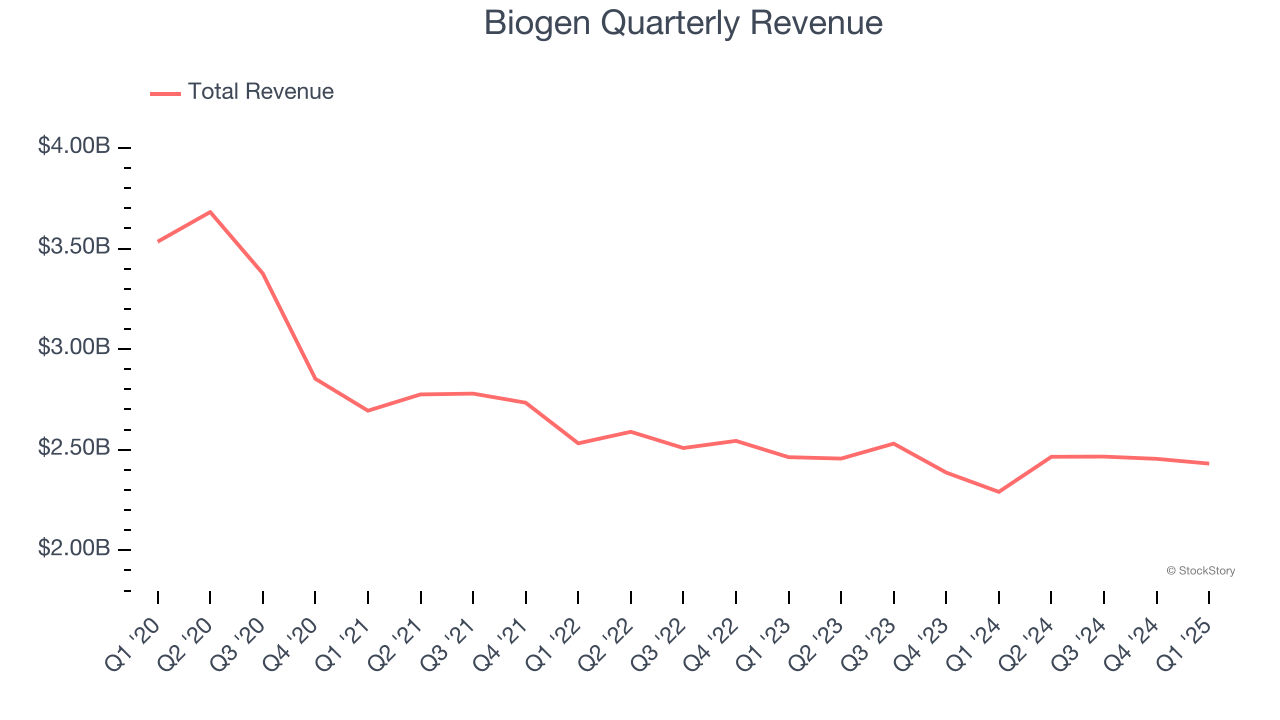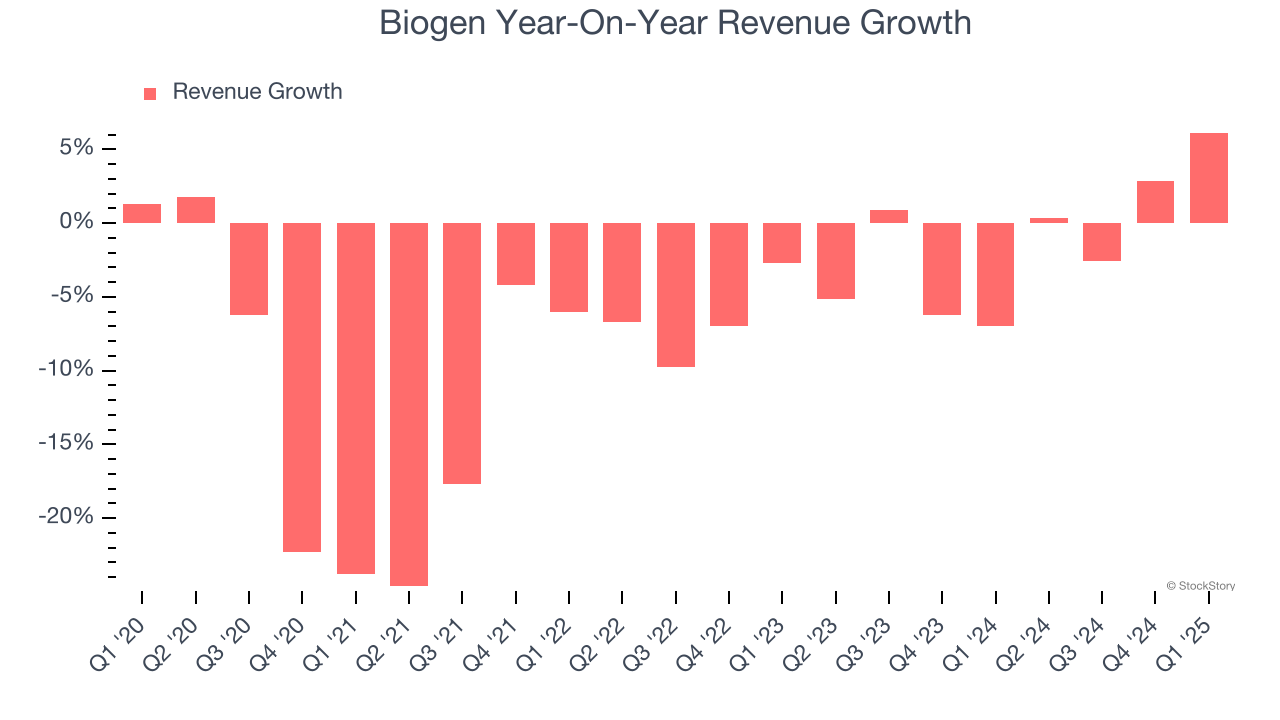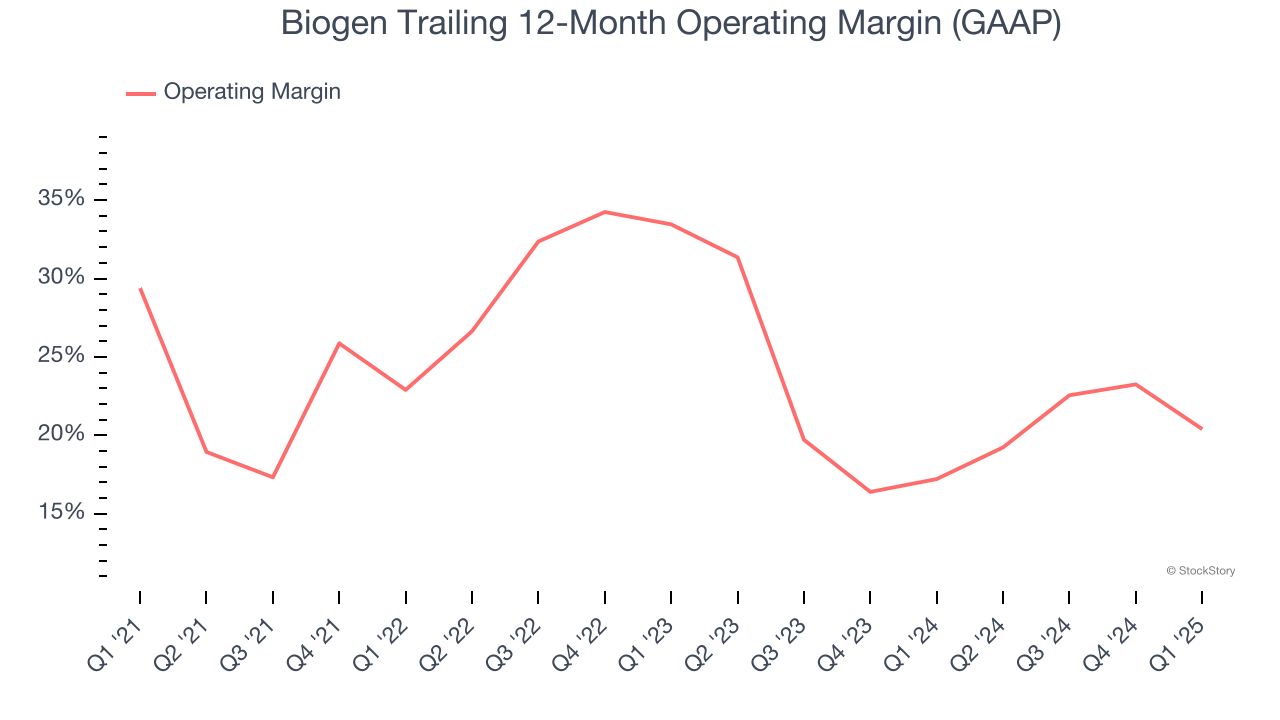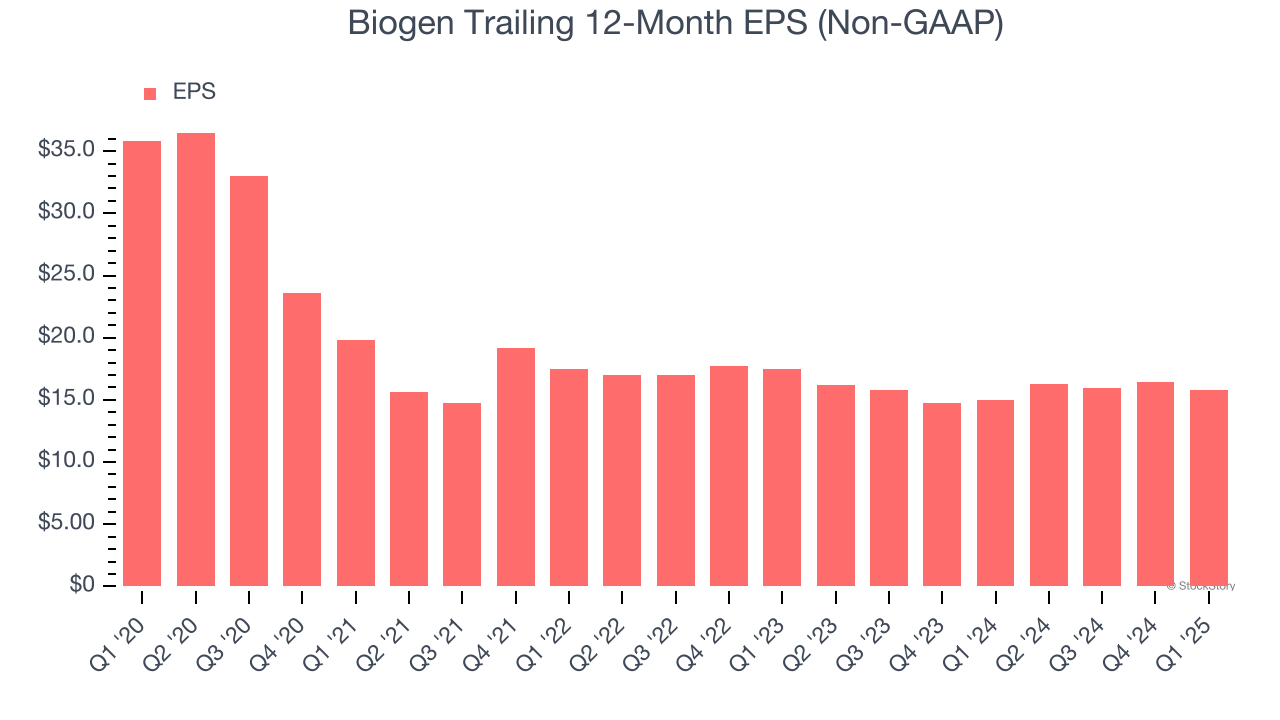
Biotech company Biogen (NASDAQ:BIIB) reported Q1 CY2025 results exceeding the market’s revenue expectations, with sales up 6.1% year on year to $2.43 billion. Its non-GAAP profit of $3.02 per share was 1% above analysts’ consensus estimates.
Is now the time to buy Biogen? Find out by accessing our full research report, it’s free.
Biogen (BIIB) Q1 CY2025 Highlights:
- Revenue: $2.43 billion vs analyst estimates of $2.24 billion (6.1% year-on-year growth, 8.6% beat)
- Adjusted EPS: $3.02 vs analyst estimates of $2.99 (1% beat)
- Management lowered its full-year Adjusted EPS guidance to $15 at the midpoint, a 4.6% decrease
- Operating Margin: 12.8%, down from 24.4% in the same quarter last year
- Free Cash Flow Margin: 9.1%, down from 22.1% in the same quarter last year
- Market Capitalization: $17.72 billion
Company Overview
Founded in 1978 and pioneering treatments for some of medicine's most complex challenges, Biogen (NASDAQ:BIIB) develops and markets therapies for neurological conditions, including multiple sclerosis, Alzheimer's disease, spinal muscular atrophy, and rare diseases.
Sales Growth
Examining a company’s long-term performance can provide clues about its quality. Any business can have short-term success, but a top-tier one grows for years. Biogen’s demand was weak over the last five years as its sales fell at a 7.4% annual rate. This wasn’t a great result and suggests it’s a low quality business.

We at StockStory place the most emphasis on long-term growth, but within healthcare, a half-decade historical view may miss recent innovations or disruptive industry trends. Biogen’s annualized revenue declines of 1.4% over the last two years suggest its demand continued shrinking. 
This quarter, Biogen reported year-on-year revenue growth of 6.1%, and its $2.43 billion of revenue exceeded Wall Street’s estimates by 8.6%.
Looking ahead, sell-side analysts expect revenue to decline by 6.4% over the next 12 months, a deceleration versus the last two years. This projection doesn't excite us and suggests its products and services will face some demand challenges.
Unless you’ve been living under a rock, it should be obvious by now that generative AI is going to have a huge impact on how large corporations do business. While Nvidia and AMD are trading close to all-time highs, we prefer a lesser-known (but still profitable) stock benefiting from the rise of AI. Click here to access our free report one of our favorites growth stories.
Operating Margin
Operating margin is a key measure of profitability. Think of it as net income - the bottom line - excluding the impact of taxes and interest on debt, which are less connected to business fundamentals.
Biogen has been an efficient company over the last five years. It was one of the more profitable businesses in the healthcare sector, boasting an average operating margin of 25%.
Analyzing the trend in its profitability, Biogen’s operating margin decreased by 9 percentage points over the last five years. This performance was caused by more recent speed bumps as the company’s margin fell by 13.1 percentage points on a two-year basis. We’re disappointed in these results because it shows its expenses were rising and it couldn’t pass those costs onto its customers.

In Q1, Biogen generated an operating profit margin of 12.8%, down 11.6 percentage points year on year. This contraction shows it was less efficient because its expenses grew faster than its revenue.
Earnings Per Share
We track the long-term change in earnings per share (EPS) for the same reason as long-term revenue growth. Compared to revenue, however, EPS highlights whether a company’s growth is profitable.
Sadly for Biogen, its EPS declined by 15.1% annually over the last five years, more than its revenue. This tells us the company struggled because its fixed cost base made it difficult to adjust to shrinking demand.

Diving into the nuances of Biogen’s earnings can give us a better understanding of its performance. As we mentioned earlier, Biogen’s operating margin declined by 9 percentage points over the last five years. This was the most relevant factor (aside from the revenue impact) behind its lower earnings; taxes and interest expenses can also affect EPS but don’t tell us as much about a company’s fundamentals.
In Q1, Biogen reported EPS at $3.02, down from $3.67 in the same quarter last year. Despite falling year on year, this print beat analysts’ estimates by 1%. Over the next 12 months, Wall Street expects Biogen’s full-year EPS of $15.82 to grow 1.3%.
Key Takeaways from Biogen’s Q1 Results
We were impressed by how significantly Biogen blew past analysts’ revenue expectations this quarter. On the other hand, its full-year EPS guidance slightly missed. Overall, this print was mixed. The stock traded up 1.5% to $122.87 immediately following the results.
Is Biogen an attractive investment opportunity at the current price? What happened in the latest quarter matters, but not as much as longer-term business quality and valuation, when deciding whether to invest in this stock. We cover that in our actionable full research report which you can read here, it’s free.
